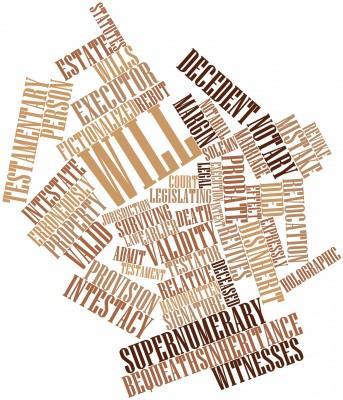
According to a recent survey by Investec a large number of people in the UK have yet to make Will.
The majority of the people they surveyed plan to make a Will at some point in the future.
Twenty Five percent of these intend to use a lawyer or Will Writing Service and Twenty percent say they are likely to use a DIY Will Template
Thirteen percent intended to write their Last Will and Testament themselves in the form of a letter.
The most interesting fact was that over one in five people do not plan on making a will and face the prospect of dying intestate.
Whatever route you decide to take its important to understand that if you are serious about ensuring your hard earned assets are protected for your beneficiaries and future generations to come, making a Will is only part of the Estate Planning Process.
Benefits of Estate Planning
If your Will wishes are very straight forward (for example you intend to make a Will only to ensure your minor children have guardians in place to take care of them should you die).
Or you can say hand on heart that you do not care what happens to your estate once it reaches your chosen beneficiaries.
Then a basic Will should suffice, this being the case I would still highly recommend using either a professional Will Writer or Solicitor.
If on the other hand you are concerned about any of the following areas of future wealth preservation for your children and grandchildren, then you need to think Estate Planning.
- Divorce or Separation Settlements
- Marriage After Death
- Creditors & Bankruptcy
- Reducing Inheritance Tax
Estate Planning Tools
Estate Planning is not a one size fits all solution, this is because everybody's circumstances are different therefore each client should be provided with bespoke Estate Planning advice that is relevant to their circumstances and wishes.
Whilst not an exhaustive list some of the bespoke solutions that make up the Estate Planning Tools available can often include:
Pilot Trusts
Recent legislation changes regarding the single settlement Nil Rate Band means it is no longer advisable to apply the ‘Rysaffe strategy’ which basically used multiple Pilot Trusts’ on second death to mitigate ongoing Inheritance tax charges.
However the use pilot trusts in the right circumstances can still have advantages, for example protecting death in service benefits.
Life Policy's in Trust
By placing a life policy in Trust the policy benefits are no longer part of your estate if you die and these benefits would not be subject to Inheritance Tax.
Gifts to Charity
Reduced rate for charitable giftsIHTA84/Sch1A legislation provides that where at least 10% of a person's net estate is left to charity, the rate of Inheritance Tax is reduced to 36%.
Discretionary Will Trusts
When considerable assets are gifted to a limited number of beneficiaries it is possible there will be an Inheritance Tax liability later down the line when beneficiaries die.
Discretionary trusts within a Will can ensure your residual estate is protected for future generations of beneficiaries.
Summary
If you are concerned about future wealth preservation of your estate speak to a professional Estate Planning Consultant about your specific wishes and concerns, this enable them to provide you with bespoke Estate Planning Advice and save you from potential costly mistakes.
Related Links
Investec Insight Summer 2014
Changes To Inheritance Taxation of Trusts
Reduced Inheritance Tax For Gifts To Charity
Estate Planners Network

